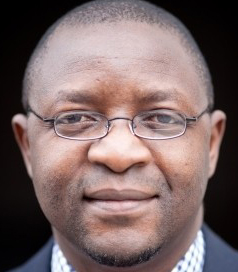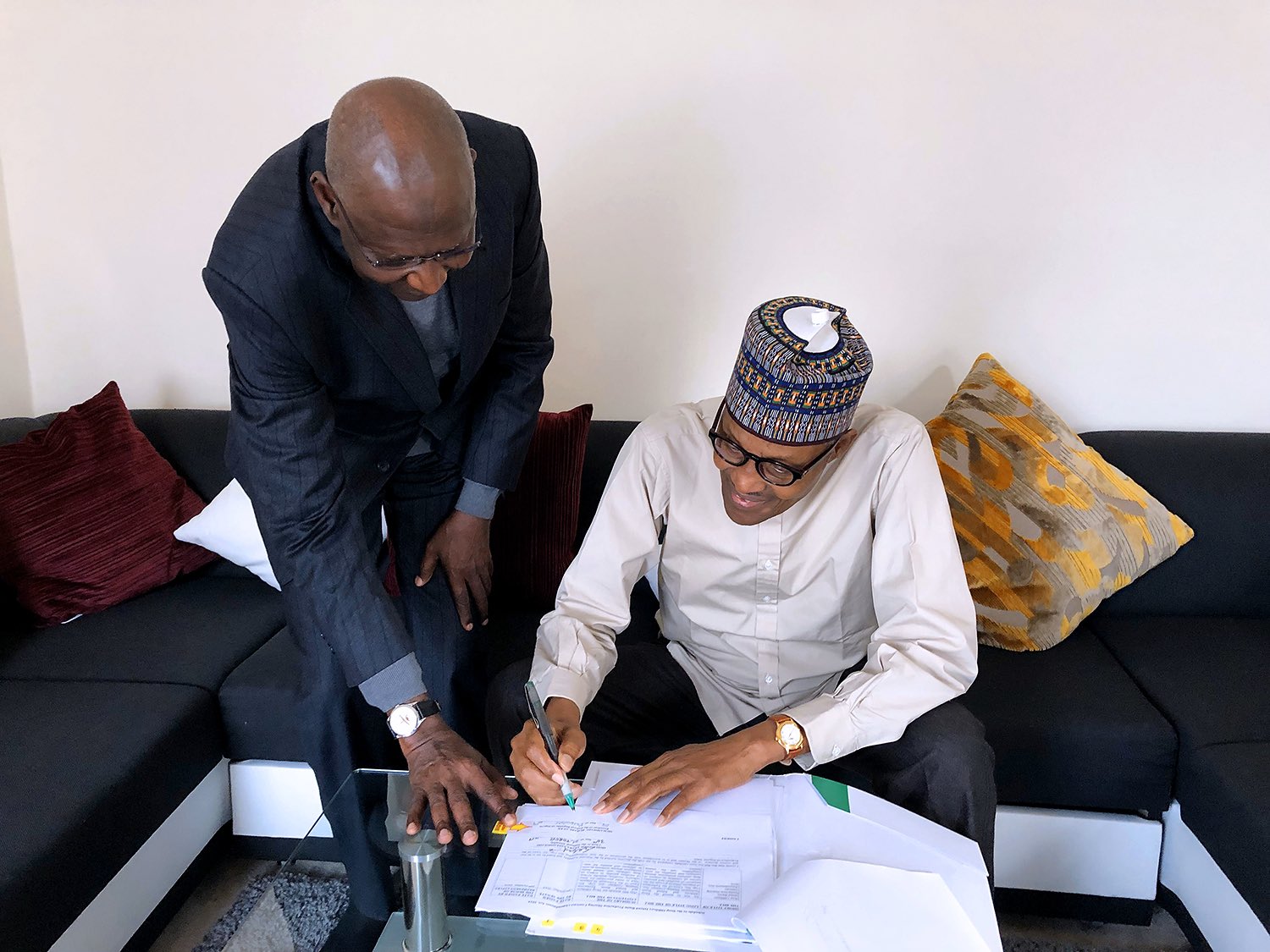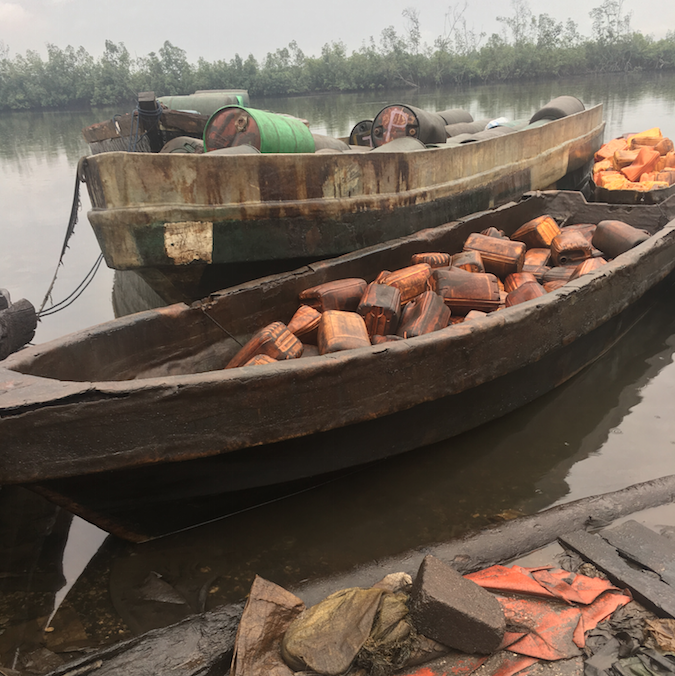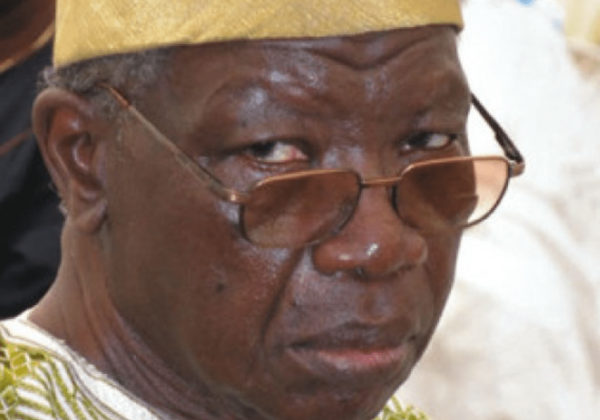On 4 November, President Muhammadu Buhari signed the Offshore (and Inland Basin Production Sharing Contract) Bill into law. His photograph with the Chief of Staff, Abba Kyari, went viral on social and traditional media. This underscores the importance of this moment to our country’s political economy. As the Presidency has stated, the amended Bill will generate an estimated $500m in additional revenues for the Federal Government in 2020, and over $1bn yearly after 2021. With the new law, the Federal Government has refused to allow our national interests to be a secondary consideration to the interests of the International Oil Companies (OIC) to maximize their profits while exporting those profits beyond the shores of Nigeria.
For years the powerful multinationals and their allies, inside and outside the country, worked against change in the Deep Offshore Act. This deprived Nigeria of significant revenue of several billion dollars more rightfully due it than due the oil companies. This imbalance impaired the government’s fiscal strength and its ability to spur economic growth. Determined for Nigeria to derive its fair share of oil proceeds so that government can do more to push the economy forward, President Buhari was committed to amending this law. After this year’s General Elections, which caused the leadership of the National Assembly to come into the progressive and patriotic hands of loyal APC members, president Buhari saw the opportunity to change this law. The President quickly went into action with the National Assembly leadership. They too sensed the unfairness of the old payment regime and how it shortchanged Nigeria’s development.
The new legislative leaders made sure the fair amendments were passed despite the intense lobbying against passage. Shortly after the new measures were passed those lobbying efforts shifted into overdrive to pressure President Buhari. Some of these activities included bilateral pressure from foreign governments. It thus became important to show Nigeria would stand firm to protect its core economic interests and to show that the executive and legislature were of one seamless accord in this regard. To demonstrate there was no going back on this important measure, the official assent of the President was needed to turn the good amendments into enforceable law of the land. The seal and signature of the President were required. There was only one thing to be done. Get the document to him to affix his hand to it. That was what happened. This was done in the interest of Nigeria and Nigerians.
The 2019 budget witnessed delays in full implementation due to crawling revenue hence the 2020 budget identified growing new revenue sources and sectoral reforms as ways to improve revenue. The Deep Offshore Act Amendment is perhaps the greatest boost to the drive to increase public revenue. President Buhari must be saluted for his principled stance. It is a victory for the Buhari Presidency, for the Ninth National Assembly and for Nigeria.
Advertisement
The development resets the clock in our economic relationships and business ventures. It heralds a new era. We must put a long overdue end to the days when doing business with the West or any other region of the globe means that Africa in general, and Nigeria in particular, would always find itself situated on the least profitable end of the arrangement. The old way was not good business. It was a guidebook to underdevelopment. The Buhari government has simply put its foot down, with emphatic knocks on the lectern that the era of Tobman Goldie is gone.
Historical parallel
The unfairness of the old revenue regime was redolent of the unequal palm oil trade relationship instituted by Sir Dashwood Tobman Goldie, the big boss of the Royal Niger Company in the colonial era against the local chiefs and merchants of Niger Delta. That President Buhari erased away such a harmful anachronism from how we are paid for our most strategic natural resource is a good day for Nigeria for we move away from the unfairness of the past to move closer to the promise of future prosperity.
What the amendment will bring
National Petroleum Investment Management Service (NAPIMS), says Nigeria hosts the world’s 10th largest reserves at about 25 billion barrels. Also, the country’s natural gas reserves is put at more than 166 TSCF (trillion standard cubic feet), with her current gas production put at 12 billion scf, which is the associated gas (AG) produced in the course of crude oil production.
Advertisement
As President Buhari said with enthusiasm, “Today I signed into law the amended Deep Offshore Act. Nigeria will now receive its fair, rightful and equitable share of income from our own natural resources for the first time since 2003.In that year oil prices began a steep increase to double –and at times –triple over the following decade. All this time Nigeria has failed to secure its equitable share of the proceeds of oil production, for all attempts to amend the law on the distribution of income have failed. That is, until today. Rapid reductions in the cost of exploration, extraction and maintenance of oil fields had occurred over these 25 years, at the same time as sales prices have risen. A combination of complicity by Nigerian politicians and feet-dragging by oil companies has, for more than a quarter-century, conspired to keep taxes to the barest minimum above $20 per barrel – even as now the price is some three times the value.”
He added: “Today this changes. For the first time under our amended law, 200 million Nigerians will start to receive a fair return on the surfeit of resources of our lands. Increased income will allow for new hospitals, schools, infrastructure and jobs. Today marks a new and beneficial relationship with our oil company partners: one that benefits all – starting with the Nigerian people.”
Details of the amendment
Of great significance is amended Section 5 of the Act which highlights Royalty by Water Depth and Royalty by Price. It says: “Royalties shall be calculated on a field basis and shall be at rate per centum of the chargeable volume of crude oil and condensates produced from the relevant period as follows: In deep offshore: greater than 200m water depth – 10 per cent, and in frontier/inland basin – 7.5 per cent.”
On Royalty by Price, it says: “The royalty rates shall be based on increase that exceeds $20 per barrel, and shall be determined separately for crude oil and condensate as follows: From $ 0 and up to $20 per barrel – 0 per cent; Above $20 and up to $60 per barrel – 2.5 per cent; Above $60 and up to $ 100 per barrel – 4 per cent; Above $100 and up to $150 per barrel – 8 per cent and Above $150 – 10 per cent.”
Advertisement
From the Senate to the Presidency
On 15 October 2019, the Senate passed the Deep Offshore and Inland Basin Production Sharing Contracts (amendment) Bill, 2019 (PSC Amendment Bill) sponsored by Senator Albert Bassey Akpan, Chairman of the Senate Joint Committees on Petroleum (Upstream), Gas and Finance. When he presented the 2020 budget to the National Assembly, President Muhammadu Buhari, stated the need to amend the PSC Bill “to secure increased revenue for the federal government to fund projected expenditure in the 2020 and subsequent budgets.” He followed this up with an executive communication to the President of the Senate, Ahmad Lawan, dated October 10, 2019, seeking quick passage of the PSC Amendment Bill into law.
The letter partly read: “Pursuant to Section 58 of the Constitution of the Federal Republic of Nigeria 1999 (as amended), I hereby present the Deep Offshore and Inland Basin Production Sharing Contracts (Amendment) Bill, 2019 for consideration and passage into law by the Senate. This Bill seeks to reflect the current realities in the oil and gas sector, as well as to secure increased revenue for the federal government to fund projected expenditure in the 2020 and subsequent budgets.”
Chika Amanze-Nwachuku in his article in Thisday entitled, Nigeria: PSC Amendment Bill and Nigeria’s Future, wrote that the Senate during the clause-by-clause consideration of its committees’ report on the bill, also amended clause 17 of the PSC Act, and amended the timeline for review of future contracts from five years to eight years. The Senate also increased the penalty for failure to comply with the obligations of the Act to not less than N500 million or a prison term of not less than 5 years, or both.
A proof of the propensity of the International Oil Companies (IOCs) to seek to maximize their profits at the expense of Nigeria’s efforts toward economic development is that the Office of the Attorney General of the Federation and Minister of Justice, Abubakar Malami, has been making a case for the recovery of over $62 billion from said companies as arrears of revenues that should have accrued to Nigeria during the years that oil sold above $20 a barrel. He actually accused the IOCs of “frustrating efforts in the past for the government to negotiate the review of the PSC.”
Advertisement
Senator Ifeanyi Patrick Ubah (Anambra South) also lamented that the non-review and amendment of the PSC Act had cost the federal government about $21 billion (about N7 trillion) in the last 20 years. “Nigeria, having lost trillions of naira due to non-review of the PSA Act, stands to gain an additional sum above N30 billion naira monthly (360 billion naira annually) if the Act is reviewed and amended,” he added.
Senator George Sekibo (Rivers East) complained: “The price of crude has since 1999 been on the rise; it was supposed to be revised after 15 years since the law was formulated. The country can make more money from PSC, but it hasn’t. Why have we failed? I understand that there is a cartel frustrating it because they make money at the expense of Nigeria. The president must personally take this upon himself and recover all the outstanding arrears.”
Advertisement
Senator Opeyemi Bamidele (Ekiti Central), stated that those who enacted the PSC Act were conscious of the fact that it must be dynamic, “but no review has been done after 15 years as stipulated.” “It even said subject to crude oil price but we have refused to review it for whatever reason and everybody watches Nigeria bleed. We must do something to save this country. There must be cost recovery ceiling, it is 50% in Angola and you can’t go beyond it. We must stop Nigeria from bleeding. Whatever needed to be done must be done,” he added.
The Senate President also hoped that the new law will “give us N160 billion proposed for the 2020 budget. So time is of essence here, and therefore, we will do everything possible to pass it, and of course follow it up, so that the effect is seen in money available to finance the 2020 appropriation…”
Advertisement
What the government should do with the windfall
This is the crux of the matter. We have many challenges to be tackled: Infrastructure, health, education, youth unemployment and others. The president said he would use the enhanced revenue to treat these obstacles to our development.
A critical area is investment in the Youth. The establishment of Nigerian Youth Development Fund, NYDF, is overdue. We must invest in them now. We need to give them jobs, entrepreneurial skills, digital skills and great opportunities for them to learn, experiment, grow and lead.
Advertisement
The month of November is designated by the African Union as the Africa Youth Month. Nigeria plugs into the challenge of 1 million by 2021 in Education, Employment, Entrepreneurship and Engagement. 4Es. The Nigeria youth must now be seen as the nation’s most precious gift that must be nurtured. A decade or so from now, beyond oil, the youth of today will be those who drive Nigeria. They must be adequately equipped now so that when their time comes they know how to steer this nation in the right direction. We must invest in them is today. Not tomorrow.
Dare is the minister of youth and sports development
Add a comment







